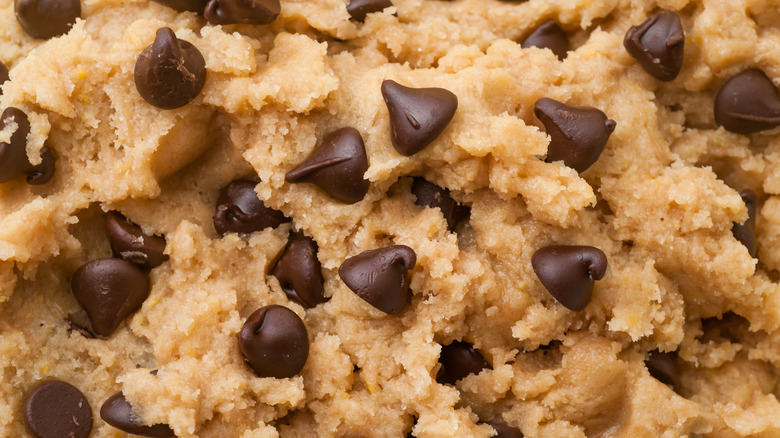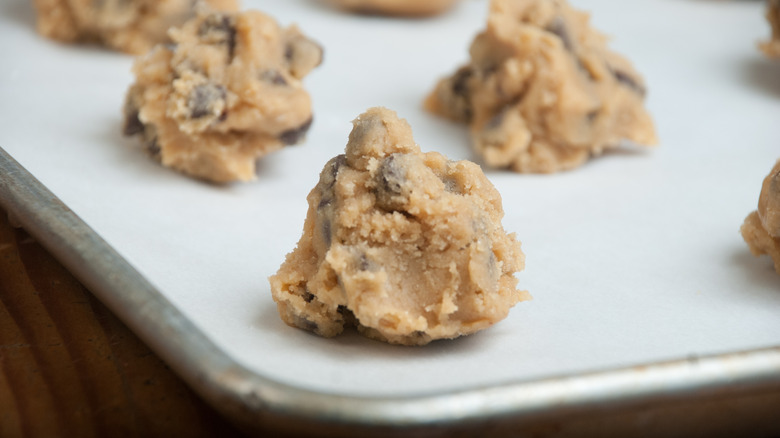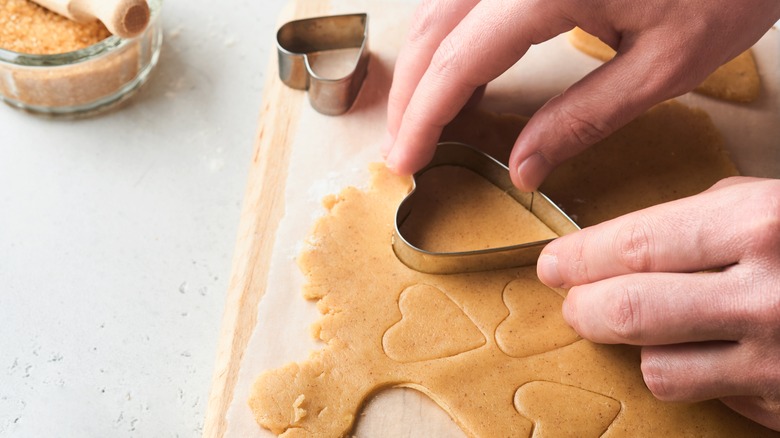Why You Should Always Chill Your Cookie Dough
So you've creamed your butter and sugar, added your eggs, and diligently incorporated the flour into your dough; you may think that the next step in making your batch of cookies is to pop them in the oven and enjoy. However, you may want to hold off on baking your cookies if you want the best, and most flavorful result.
An often overlooked step in many cookie recipes, chilling cookie dough before baking might be the key step in making the most of your cookie-making endeavors. But why, exactly, should you chill your dough? Well, the main reason for chilling cookie dough is to prevent the dough from spreading out during the baking process. A colder dough allows for the dough to spread slowly, and more evenly while baking, producing the perfect shape and texture. Of course, this is just one of the many benefits of chilling your cookie dough. Other benefits include a more intense taste and a more pleasant texture.
A whole new texture and flavor awaits
But why exactly, does chilling cookie dough help to stop your cookies from coming out flat? Well, it starts with butter. Most cookies use butter as the primary source of fat in their ingredients. Butter is the base of most cookie recipes, and is usually added at room temperature for proper creaming. However, when butter sits at room temperature it softens, and this softened state can cause cookie dough to spread out while baking in the oven, producing thin, floppy, and uneven cookies.
Chilling dough for 30 minutes, however, solidifies the butter within the mixture of the cookie dough, allowing for the dough to retain its shape and spread slowly and more evenly in the oven. However, this is not the only benefit of chilling your dough. Letting your dough sit in the fridge or freezer can also help concentrate the flavor of cookies, perhaps by letting the ingredients like flour break down into carbohydrates and sugar. Additionally, freezing your dough can produce a crispier, chewier cookie. This is because chilling dough dries out your dough, raising sugar concentration and yielding chewier cookies. Of course, to fully reap this benefit, cookie dough should freeze for at least a few days, but even 30 minutes can help intensify your cookies' flavor.
Does how long you chill your dough matter?
But how long should you chill your dough? Well, the answer isn't one size fits all. In terms of controlling cookie dough spread, however, it seems that 30 minutes is all you need to see optimal results. In an experiment to test the effects of dough freezing, King Arthur Baking tried chilling cookie dough for various lengths of time and found that chilling cookie dough for longer than 30 minutes didn't have a significant impact on cookie dough spread. However, it did impact the cookie's flavor and color; the longer the cookie dough spent in the freezer (up to 10 days), the darker and more flavorful it would become after baking.
These results are certainly not universal though; there are some exceptions. While sugar cookies should always be chilled overnight, along with many other cookie recipes, certain specialty cookies shouldn't be chilled. But besides some specific cases, chilling your cookie dough might just be that final touch you need to perfect your stand-by recipe.


